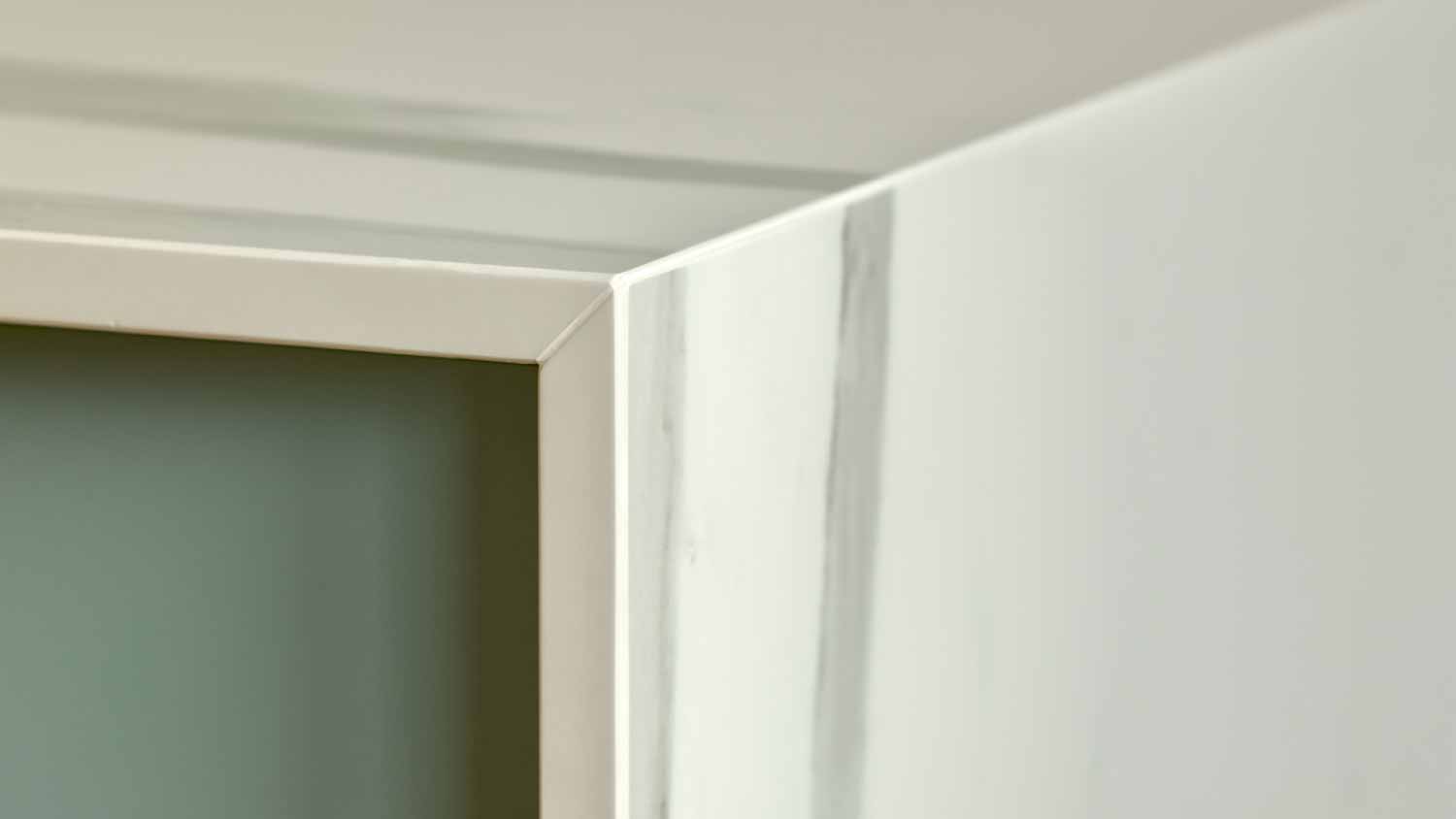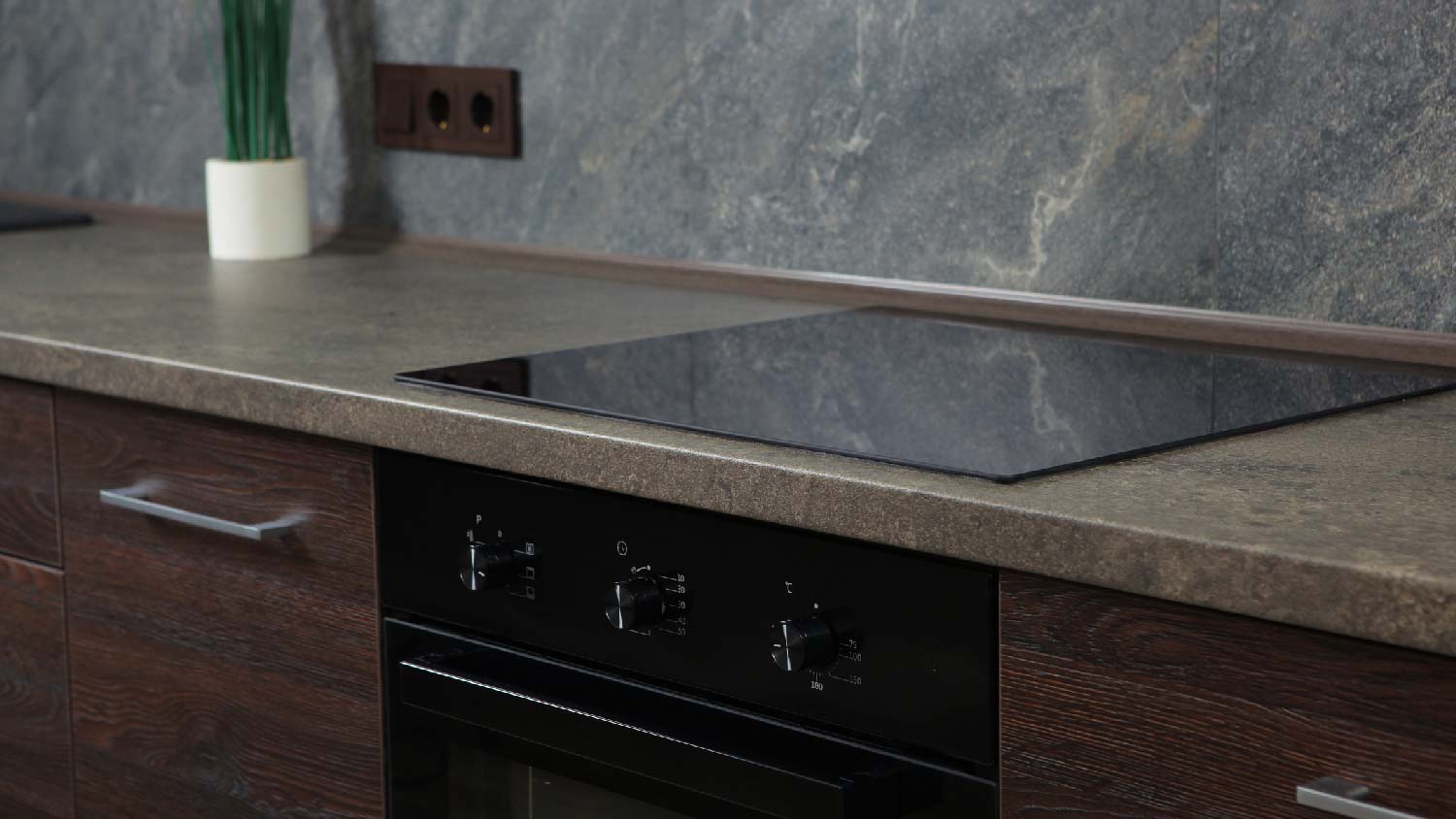
Countertop repair costs may be the deciding factor between replacing or repairing your counter. Let’s break down the cost to repair, resurface, or relaminate.
Tough, stylish, and ready for anything


Dekton countertops are nonporous and suitable for both indoor and outdoor kitchens.
The material resists heat, stains, and scratches, making it ideal for busy spaces.
It is considered one of the most expensive engineered stones at $80 to $160 per square foot.
Avoid dropping heavy items on the surface, which can cause severe damage.
Your kitchen is one of the busiest rooms in the house, and it deserves countertops that can keep up. Dekton is heat-resistant, stain-proof, and scratch-resistant—ticking all the right boxes. While its durability and sleek look have won over countless homeowners, it’s not without drawbacks. Here’s a straightforward look at the pros and cons of Dekton countertops to help you decide if they’re the right fit for your space.
Dekton is an engineered stone material consisting of porcelain, quartz, and glass fused under extreme heat and pressure. The result is a highly durable surface that withstands heat, scratches, stains, and harsh UV rays. Perhaps best of all, it is relatively maintenance-free, requiring no sealing. For many homeowners, Dekton's strength and low maintenance make it a premium choice for indoor and outdoor kitchens.
| Pros | Cons |
|---|---|
| Highly durable | Expensive |
| Fireproof | Requires pro installation |
| Scratch-resistant | Brittle |
| Stain-resistant | Hard to repair |
| Mimics natural stone | Limited colors |
| Nonporous | Limited edge options |
Dekton countertops offer durability and easy maintenance. Here are more reasons why this material is a strong contender for your next remodel.
Without getting too scientific, Dekton countertops are highly durable because the material uses a sophisticated process called sintered particle technology, which combines raw materials under extreme heat and pressure. This unique process makes Dekton a hardy material for indoor and outdoor spaces.
Dekton countertops are not just heat-resistant—they are fireproof and certified as a non-combustible material. That means they can withstand direct exposure to open flames without worrying about scorching, burning, or warping.
Home cooks appreciate that they can slice and dice on Dekton countertops. The surface is built for daily use, including direct contact with sharp knives and other cooking tools far beyond what natural stone countertops can safely handle.
With Dekton countertops, you can expect a long-lasting finish that stays pristine without much effort. Unlike natural stone, you won't need special cleaners or coasters. Daily messes and spills, including red wine, can be quickly wiped up with soap and water without the fear of staining.
Fans of natural stone will appreciate how Dekton replicates the look of materials like marble, granite, and limestone. You will find options with veining and other organic stone patterns in a broad range of neutral shades, including soft beiges, warm taupes, cool grays, and deep charcoal. All of the above makes Dekton an easy match for any kitchen design.
Many homeowners dread sealing a countertop up to two times yearly to protect its surface. With Dekton, that extra step isn’t necessary because the surface is nonporous, which means it locks out bacteria and moisture from spills. Not only does this help preserve the look of your countertop, but it also creates a more hygienic food prep area.

Before investing in Dekton countertops, it’s just as important to consider the material's drawbacks. While they offer impressive durability and style, they also have a few limitations that may impact your decision.
The average countertop installation cost for homeowners is around $3,155. However, Dekton countertops cost more than quartz, granite, or even some types of marble. On average, Dekton countertops cost $3,770, or $80 to $160 per square foot.
The countertop's high price tag is partly due to its energy-intensive manufacturing process. While the material's durability and low maintenance can make it a worthwhile investment, the up front cost does not fit every homeowner's remodeling budget.
Dekton’s ultra-compact structure makes it extremely heavy and challenging to cut, requiring expert installation. DIYers should steer clear, as improper handling can lead to cracks or an uneven fit.
No matter what type of countertop you wish to install, it is always best to work with a local countertop contractor. These pros have the experience to help you decide what works best for your dwelling based on your budget and lifestyle.
Like so many things in life, Dekton can crack under pressure. While the material is tough, its hardness means it lacks flexibility, so sudden force from a heavy object or stress from uneven cabinets underneath can lead to cracks, chips, and fractures.
Most countertop types are challenging to repair, and Dekton is not an outlier. However, while you can refinish a wood countertop or patch laminate and granite, a damaged Dekton countertop may require replacement.
Dekton may not be for you if you crave bold, bright colors in your kitchen. While the material often resembles stone or engineered quartz, your options may be limited if you seek unique patterns or exotic hues.
Most types of countertops allow for intricate edge detailing. However, because of Dekton's brittle nature and cutting difficulty, edge customizations are restricted to more straightforward profiles.
Plenty of other highly functional countertop materials are available, and they share some of Dekton’s best traits.
Quartz is a nonporous material that is hygienic and resistant to stains without sealing.
Granite is a hardy natural stone with unique veining that many homeowners seek, though it requires sealing.
Porcelain uses a high-temperature firing process to create a heat and scratch-resistant surface, and it’s available in thinner slabs.
Stainless steel is the top choice for most commercial kitchens due to its heat resilience and easy maintenance.
Concrete is another durable surface, but prolonged exposure to extreme temperatures can damage it.
Dekton countertops are great for busy indoor and outdoor kitchens, especially if you love the look of natural stone without the upkeep. However, due to Dekton's dense construction, professional installation is a must. Its weight and cutting difficulty make it more expensive to install than other countertop materials, so be sure to factor budget and installation complexity into your decision.
From average costs to expert advice, get all the answers you need to get your job done.

Countertop repair costs may be the deciding factor between replacing or repairing your counter. Let’s break down the cost to repair, resurface, or relaminate.

Explore how much concrete countertops cost to install based on factors like their size, thickness, location, finish, and labor rates.

Discover the cost of installing laminate countertops, including how their size, material, and finish impact your total price.

Discover the best outdoor kitchen countertop ideas. From durable granite to sleek concrete, find the perfect match for your taste and budget today.

Granite countertops need a sealant to prevent staining and other lasting damage. Learn how to seal granite countertops to keep them in great shape for longer.

If you’re remodeling and looking to replace countertops, you’ll want to hire countertop contractors. Read on for tips for hiring a countertop installation company.